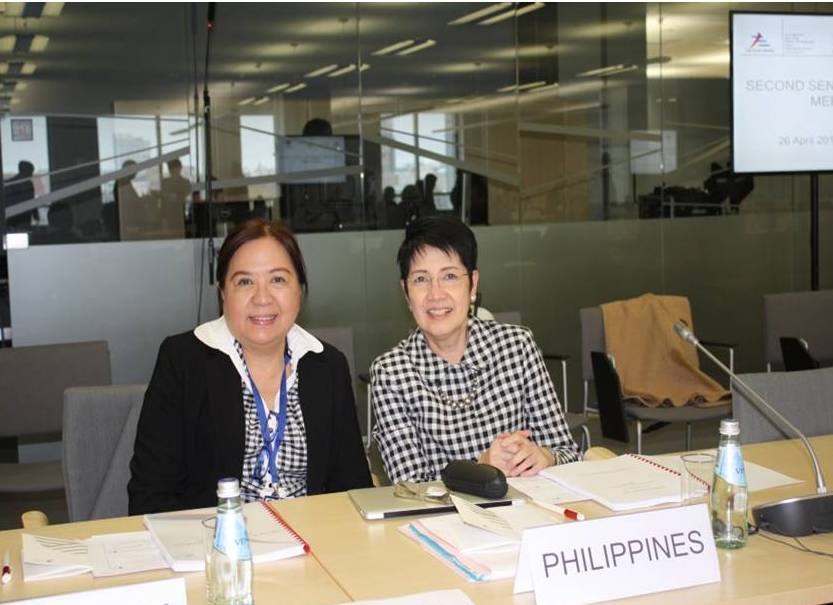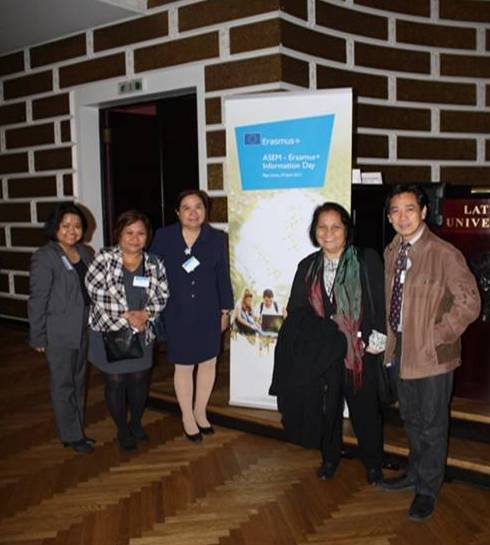

The 5th ASEM Education Ministers’ Meeting (ASEMME5) whose theme is “ASEM Education Collaboration for Results” approved twenty-one (21) future ASEM Education initiatives and confirmed their commitment to the further development and strengthening of the cooperation in the four key policy areas such as 1) quality assurance and recognition of qualifications; 2) engaging business and industry in education; 3) balanced mobility and 4) lifelong learning, including technical and vocational education and training.
ASEMME5 acknowledged that the ASEM Education Process is a forum for informal dialogue among the ASEM members and partners. The Ministers also expressed their willingness to build the ASEM education cooperation on a two-pillar system. The first pillar representing the dialogue-oriented cooperation, providing a platform for mutual learning and exchange of experiences strengthening mutual understanding and providing incentives for education policy and strategy developments at institutional, national and regional level. The second pillar represents the result-oriented cooperation composed of tangible activities and measures. The Ministers supported the commitment of ASEM member countries to specific themes or result-oriented activities depending on different national targets and interests.
ASEMME5 welcomed 196 participants from 46 member countries and 11 stakeholder organizations in Riga, Latvia. The Ministers agreed on the need to increase tangible, result-oriented cooperation activities within the framework of the existing ASEM priority areas; quality assurance and recognition; engaging business and industry in education; balanced mobility; and lifelong learning in technical and vocational education and training.
Over 20 bilateral meetings took place and new bilateral agreements between Asian and European countries were signed on both days of the ministerial meeting, including agreements on the mutual recognition of higher education qualifications between China and Estonia, as well as China and Lithuania. Latvia and Japan signed a Memorandum of Cooperation last 29 April.
The meeting considered current global developments and their impact on education policies in ASEM countries. The plenary sessions addressed issues such as the contribution of ASEM education cooperation to the development of skills for better employability, and the current rapid technological developments that promote the emergence of new learning technologies in education. Their impact on the strengthening of ASEM education cooperation was also discussed.
The Ministers reconfirmed the strategic role of education in promoting sustainable and inclusive development and innovation. They also highlighted the importance of tangible cooperation activities and measures aimed at achieving results.
The participants also stressed the importance of improving transparency and understanding of improving transparency and understanding as regards the different education systems, by making them more comparable, facilitating mobility and enhancing collaboration. They supported the ambition of building a cross-border and cross-regional area for cooperation at policy and institutional level, and emphasized the need for an area where the mobility of students, teachers, researchers, ideas and knowledge would be the core common goal.
An ASEM Erasmus + Information Day also took place at the University of Latvia on 29 April as culminating activity. The event provided an overview on the projects/actions under the Erasmus+ Programme. It provided valuable insights on experiences of current and past participants under the ASEM initiative.
Asia Europe Meeting or ASEM was founded in 1996, it has proven to be the key platform for informal dialogue and collaboration between Asia and Europe. Realizing the importance of education as investment in human resources, the ASEM Education Process was launched in 2008, allowing an intensive exchange of best practices in education and training.
Commissioner Cynthia Rose B. Bautista of the Commission on Higher Education headed the Philippine delegation which also include; Ambassador Patricia Ann V. Paez; Atty. Lily Freida Milla, Director III of the Commission on Higher Education; Dr. Rhodora Azanza, Assistant Vice President of the University of the Philippines; Dr. Alvin Culaba, Director, De La Salle University; and Attaché Catherine B. Ramintas of the Philippine Embassy, Warsaw.

